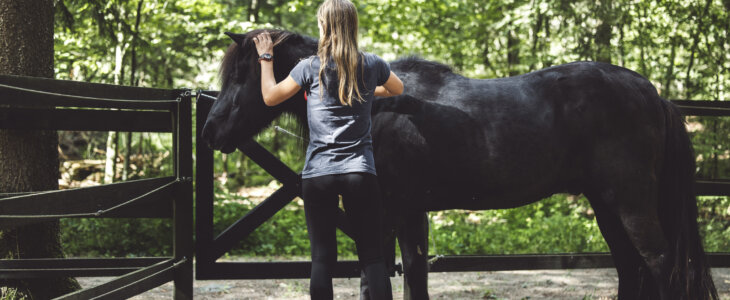Horses are not just pets. They are beloved companions, riding partners, and more. In other words, to many horse owners, horses are part of the family. And sometimes horses outlive their owners. Therefore, as a horse owner, it’s important to consider what will happen to your horse after you pass away. One way to address this is through the equine estate planning process. In this article, we discuss securing your horse’s future with equine estate planning.
Transfer of Ownership
At the bare minimum, every horse owner should have a valid will addressing the distribution of their property, including their horse. To avoid the lengthy and costly public probate process, it is recommended that horse owners register ownership of their animals in a revocable trust. Assets in such a revocable trust pass to the beneficiaries of the trust outside of probate.
Asset Protection
Horses are very expensive, and some horse owners possess multiple horses. Owning a horse in one’s own name can put the horse at risk of being seized to satisfy a judgment against the animal’s owner. However, owning horses as “tenants by the entirety” or in an LLC or some other legal entity can potentially protect them from creditors. In addition, owning a horse through an LLC has the additional advantage of limiting the owner’s liability risk if the horse hurts a rider.
Horse Trusts
One of the main concerns of horse owners is ensuring that their animals are cared for after death. These animals have considerable needs, including grooming, boarding, and veterinary care. In addition, horses can live for up to 30 years. Previously, equine estate planning involved making a bequest to a party with a request that they place the funds towards the horse’s care. However, such planning primarily relied on trust between the individuals. In many cases, the money in these types of situations was squandered and not used to care for the horse.
Fortunately, Florida now has laws in place that allow horses and other animals to be the object of a trust fund. This type of trust, commonly called a “pet trust,” allows for the continued maintenance and care of a horse after its owner’s death. A horse’s owner may establish and fund a horse trust during the owner’s lifetime or upon the death of the owner. In addition, a horse trust may be established to retire an older horse or to allow a younger horse to continue in competition. A horse trust terminates upon the death of the animal, and the balance of the trust may be paid over as directed by the owner in the trust document.
Contact a Marion County Equine Law Lawyer
For assistance with equine estate planning in the state of Florida, Gueronniere, P.A., is here to help. Experienced Wellington equine estate planning attorney Grace de la Gueronniere has the knowledge necessary to help you with all your equine law needs. Please contact us today to arrange a consultation with an experienced equine law lawyer.

